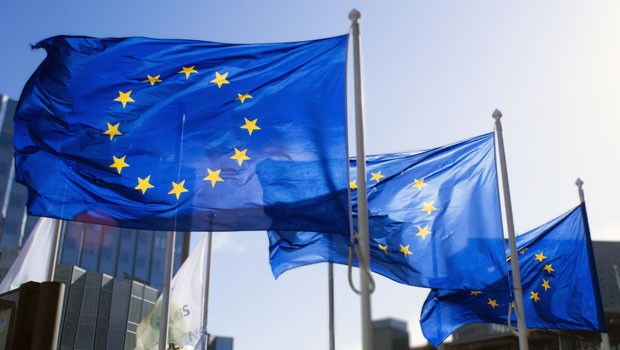European Commission cuts economic growth expectations

The European Commission unveiled its summer 2023 economic forecast on Monday, cutting its expectations for growth across the eurozone and the wider 27-member European Union.
It said the EU's economy was still on a growth trajectory, although with lessened vigour.
Growth projections for the bloc’s economy were adjusted downwards to 0.8% for 2023, from the 1% the EC anticipated in its spring forecast.
The expectation for 2024 was similarly revised to 1.4% from the previously-forecast 1.7%.
For the single currency area, growth rates have been adjusted to 0.8% for 2023, from 1.1%, and to 1.3% for 2024, from 1.6%.
The EC said preliminary data for 2023 indicated subdued economic activity within the EU, largely due to significant economic shocks experienced earlier.
It said rising consumer prices across a spectrum of goods and services appeared to have weighed more heavily on consumption than was earlier anticipated in the spring forecast.
Those inflationary effects were evident despite falling energy prices and a robust labour market marked by low unemployment, expanding employment, and wage growth.
Indications were that the contraction in bank credit provisions to the economy - a direct outcome of monetary policy tightening - was also significantly influencing the economy.
It said survey indicators now suggested a cooling down of economic activities in the coming months, with industries facing continued challenges and services seeing a potential decline in momentum.
Globally, the EC said the first half of the year saw a better economic performance than expected, despite China underperforming.
However, the overall worldwide economic and trade outlook remained relatively stable since spring, indicating that the EU economy might not benefit significantly from heightened external demand.
Looking ahead, the commission said the EU's slower growth trajectory was projected to persist into 2024, with stringent monetary policies anticipated to limit economic activity.
However, it noted a silver lining as a slight growth rebound was expected in the following year.
That optimism was based on the forecasted decline in inflation, continued strength in the labour market, and a recovery in real incomes.
“The EU avoided a recession last winter - no mean feat given the magnitude of the shocks that we have faced,” said European Commissioner for the Economy, Paolo Gentiloni.
“This resilience, most evident in the strength of the labour market, is a testimony to the effectiveness of our common policy response.
“However, the multiple headwinds facing our economies this year have led to a weaker growth momentum than we projected in the spring.”
Gentiloni noted that inflation was declining, but at differing speeds across the European Union, while Russia’s “brutal war” against Ukraine continued to cause both human suffering and economic disruption.
“Yet we must have trust and confidence in the future of the European economy - there is much that we can do to support sustained and sustainable growth.
“The effective implementation of national recovery and resilience plans remains a key priority.”
Paolo Gentiloni said prudent, investment-friendly fiscal policies needed to be pursued, in tandem with the ongoing efforts of the bloc’s central banks to tame inflation.
“Lastly, we must work with determination to conclude an agreement on the reform of our fiscal rules by the end of the year.”
Reporting by Josh White for Sharecast.com.